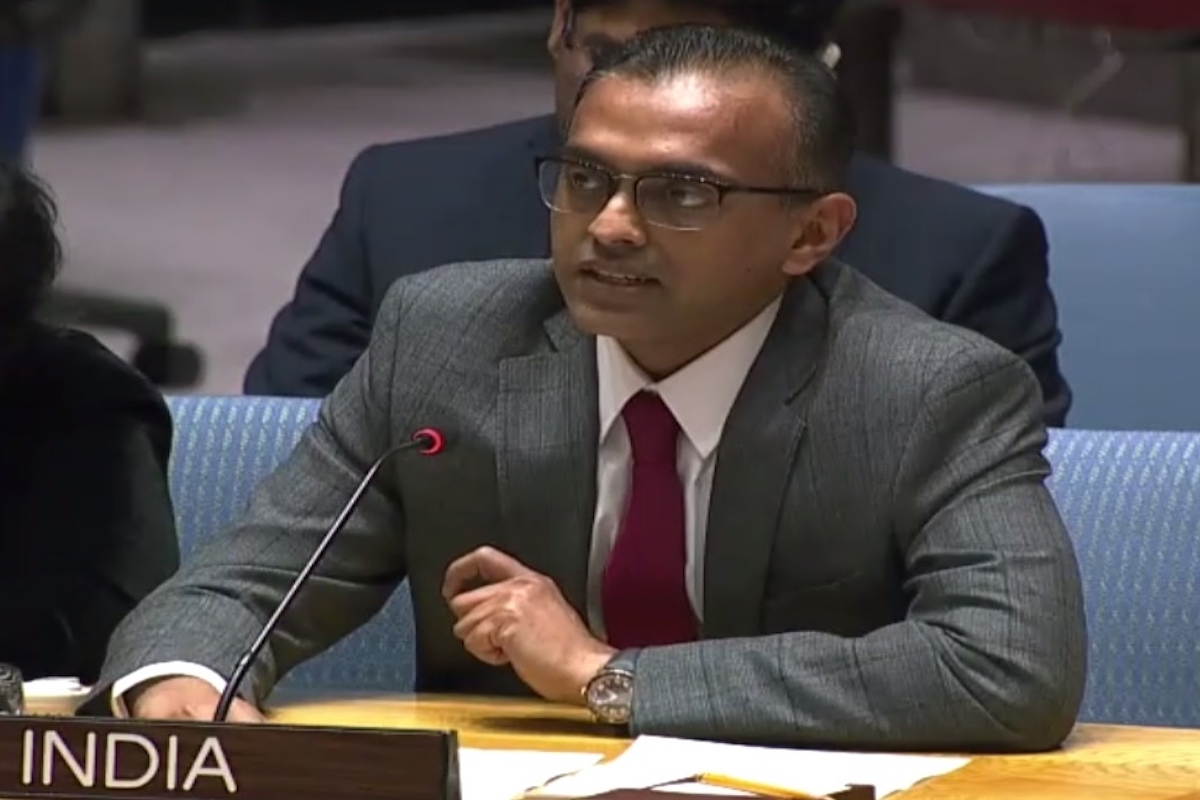India, along with Brazil, Germany and Japan, has served an ultimatum that the supporters of Security Council reforms will be forced to look for other ways to move the process forward if the UN’s Intergovernmental Negotiations (IGN) for reform continues to be “held hostage” by those opposing change.
As the General Assembly rolled over on Monday the deadlocked IGN process to the next session that starts later this month, India’s Deputy Permanent Representative Nagaraj Naidu issued the warning in a letter to Assembly President Tijjani Muhammad-Bande written on behalf of the G-4, the group of four countries that mutually support each other for a permanent seat on a reformed Council.
Advertisement
He wrote, “There is a need to ensure that the IGN process is not held hostage, procedurally and substantially, by those who do not wish to bring about reform in the Security Council.”
“If this happens, and there are indications that this is already happening, those who demand reforms will be forced to look for other ways to finally make progress, including potentially outside the IGN process,” he added.
The letter did not identify the countries hiding behind the “smokescreen” of procedures in the IGN to hold the process hostage.
They are a group of 12 countries that call themselves Uniting for Consensus (UfC) led by Italy and includes Pakistan. The group’s agenda is prevent adding permanent members to the Council.
For more than a decade the group has blocked the adoption of a negotiating text on which to base the discussions by insisting that there should be a consensus on reforms before the text can be adopted. Consequently, the IGN process has not been able to hold meaningful negotiations.
“In the last decade or more of IGN meetings (since 2009), there has been practically no progress,” Nagaraj wrote, because of the contention that “rules of procedure, allegedly, should not apply, due to the supposed ‘informal nature’ of the discussion.”
“There has been no effort to capture the discussions in a single consolidated text for negotiations, which should be the essential task for any facilitator of any UN negotiations,” he added.
The formal decision to rollover the negotiations was adopted on Monday using the silence procedure of voting under which resolutions and decisions are declared approved by the Assembly if no one voices an opposition within a timeframe after the Assembly president’s announcement.
The procedure is being followed because the COVID-19 pandemic has stopped in-person Assembly meetings where voting can be held in the traditional manner.
The letter on behalf of the G-4 and a separate one written along the same lines by India were not to be construed as “breaking the silence,” which would be a vote against the decision.
One of the avenues for bypassing the IGN is initiating the process to amend the UN Charter under its Article 108, which requires a two-thirds majority of UN members including all the permanent Council members.
While it may be possible to muster a two-thirds majority, the hurdle would be getting all the permanent members to agree.
The US, Britain and France support India’s permanent membership while Russia is lukewarm in its backing and China is against it.
The US is likely to oppose possible African nations for permanent membership.
The IGN process was set up to ensure that there would be consensus or near unanimity to come up with charter amendment for reforming the Council that would also determine how many additional non-permanent members are to be added and the exercise of veto powers.
The IGN process had a late start in the current session with the appointment of the IGN cochairs, Lana Nusseibeh of the United Arab Emirates and Joanna Wronecka of Poland, only in December.
It held two meetings with the cochairs declaring in May that no further sessions were possible because of the COVID-19 crisis that shut down the UN.
The G-4 letter also said that the rollover decision did not reflect the progress made in one area relating to the broad support that African nations received for their demand for reforms.
Naidu expanded on this in his letter on behalf of India and cited the “rising chorus of support from the members for the Common African Position” on reforms.
The African position reflected in two documents, the 2005 Ezulwini Consensus and the Sirte Declaration, adopted by the African Union calls for two permanent and five non-permanent seats on the Council for the continent.
The Nonaligned Movement and the L.69 group of countries pressing for reform, besides G-4 and the African group, have made a strong case for the African position and this is not reflected in the rollover decision, Naidu wrote.
“It is only correct that the growing support expressed for the Common African Position in the two meetings of the IGN earlier this year are captured in the body of the roll-over decision,” Naidu wrote.
“Otherwise we will be in danger of endorsing an incorrect perspective of this year’s work and give an impression that nothing has transpired,” he added.
The emphasis on the support for the African position by a broad section of the UN members exposes the UfC and the others who would block the reforms at the cost of the African nations that have a vicious history of colonialism.
In his letter on behalf of India, Naidu quoted Secretary-General Antonio Guterres, who said in July about the Council and other organisations, “The nations that came out on top on top more than seven decades ago have refused to contemplate the reforms needed to change power relations in international institutions.”











